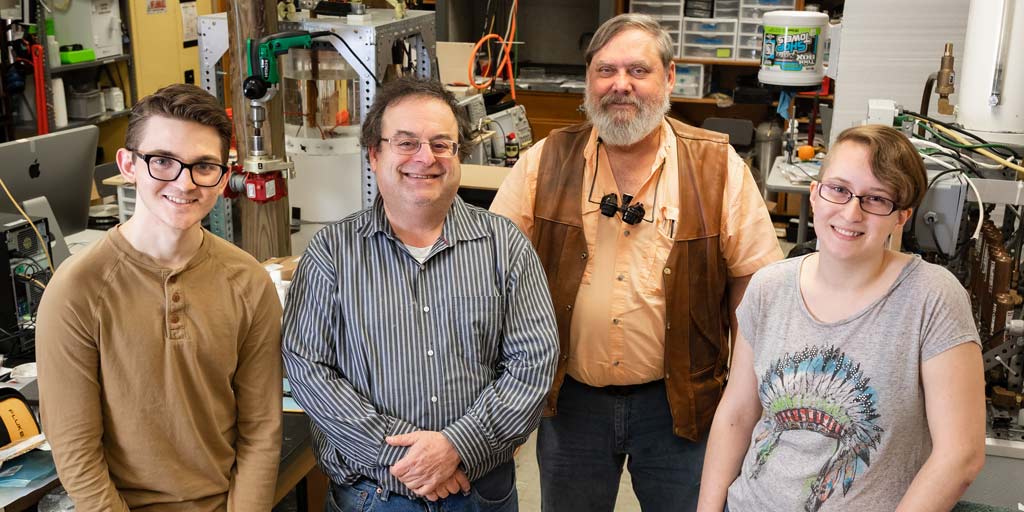The Theory of Everything
The next great discovery in the world of physics just might happen in the basement of Northside Hall. Ilan Levine has been a professor of physics at IU South Bend since 2004. He is leading a group of students on a project to learn more about dark matter which makes up 85 percent of the mass of the universe but cannot be seen. The reason we know so little about dark matter is due to the fact that it reacts with atoms very weakly which makes it difficult to study.

Not pictured: Alexandria Weesner (physics major)
IU South Bend’s research is part of the PICO Project which consists of 19 universities in the United States, Canada, Spain, Czech Republic, Mexico, and India, all using different methods to discover more about dark matter. The project also includes national laboratories that are building large bubble chambers to increase the likelihood of finding dark matter. Levine recently received a $770,500 grant from the National Science Foundation to fund the PICO Project. This grant is split between IU South Bend, Penn State, and Northeastern Illinois University.
Levine’s team consists of engineer Ed Behnke and students Alexandria Weesner, Trace Karnitz, Paige Oedekerk and Nathan Walkowski. Weesner, a junior at IU South Bend, recently spent her summer at Louisiana State University where she worked in a lab that detects gravitational waves. They are looking to find dark matter through a method that involves putting normal atoms in a superheated liquid.They then use a device that monitors the atoms to see if any of them come in contact with a dark matter particle. The team can then measure those reactions should they occur.
Levine has also been developing acoustic transducers, which measure the sound of the transition between the liquid and gas states of atoms. “In 2008, we discovered the sound that comes from a bubble that is made from dark matter is quite different from the sound that comes from background radioactivity,” said Levine. According to Levine, acoustic transducers are essential to discovering dark matter.
Levine and his collaborators have received a series of NSF grants over the years supporting their search for dark matter. Since 2004, 47 IU South Bend undergraduates, 6 area high school science teachers, and 8 area high school students have worked on the project.
Levine believes the discovery of dark matter will put us much closer to what scientists call the “Theory of Everything.” If dark matter is discovered, the first thing scientists will do is study its properties. When asked about what the discovery of dark matter would mean for the science community Levine said, “All of those properties will inform us on how we have to change our laws of particle physics.” The lab in the basement of Northside Hall will be a part of it.
Written by Carter DeJong, staff writer for The Preface

